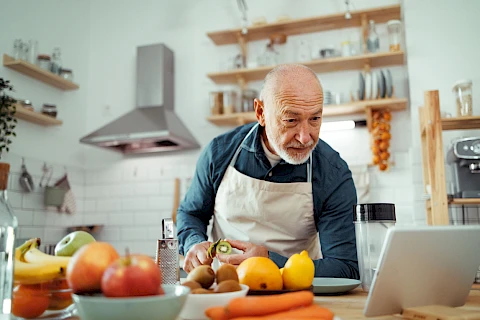
As our loved ones age, their nutritional needs change, making a balanced diet essential for maintaining strength, immunity, and overall well-being. Proper nutrition helps prevent chronic diseases, supports cognitive function, and enhances their quality of life as they grow older. Discover practical dietary solutions that can help improve the well-being of seniors and learn strategies to manage meal planning and preparation efficiently.
Key Nutritional Needs for Seniors
Seniors have specific nutritional requirements that are essential for their health. Calcium and vitamin D are crucial for bone health, helping to prevent conditions like osteoporosis. Fiber aids digestion and can prevent constipation, while protein is vital for maintaining muscle mass and strength. However, many seniors face dietary challenges, such as reduced appetite, difficulty chewing or swallowing, and food preferences that change over time. Understanding these needs and challenges is the first step toward helping seniors maintain a balanced diet.
Meal Planning Strategies
Creating balanced meal plans tailored to seniors is an essential part of caregiving. Here are a few tips to consider:
- Variety: Include a wide range of foods to meet all nutrient needs. This can also make meals more enjoyable.
- Portion control: Serve manageable portions to avoid overwhelming seniors, and consider smaller, more frequent meals if needed.
- Seasonal and local produce: Incorporating fresh, seasonal fruits and vegetables can enhance flavor and provide essential vitamins and minerals.
Meal Preparation Tips
Everyone appreciates quick and efficient meal preparation. To save time while ensuring nutritious meals, you can use slow cookers or pressure cookers to minimize hands-on cooking and speed up the process. Food processors and blenders can simplify prep work and make it easier to create smoothies or pureed foods for those with swallowing difficulties. Preparing meals in large batches, such as casseroles, soups, or stews, saves time and provides convenient, healthy options for multiple servings.
Addressing Special Dietary Requirements
Many seniors have special dietary needs that must be considered:
- Low-sodium and diabetic-friendly: Modify recipes to reduce salt or sugar content. Opt for herbs and spices for flavor and choose whole grains over refined carbohydrates.
- Swallowing or dental Issues: For those with difficulties, consider softer foods or pureed options, and ensure they are easy to chew and swallow.
Practical Solutions for Caregivers
Engage your loved one in meal planning and preparation. Encourage seniors to participate in selecting recipes or cooking, which can be a satisfying and stimulating activity. Maintaining a consistent meal routine can help regulate digestion and meet nutritional needs. Finally, make mealtime a family event. This improves intergenerational bonds and can even optimize nutrition intake.
Need a Hand in the Kitchen? Get Cooking With Senior Helpers!
By understanding key nutrients, planning balanced meals, and preparing them efficiently, caregivers can significantly impact the health and happiness of their loved ones. We encourage caregivers to implement the strategies discussed and prioritize senior nutrition.
One of our many services is meal preparation. From grocery shopping to putting healthy food on the table for your senior loved one, we can help ensure they get the best nutrition and enjoyment from their meals. Contact us at Senior Helpers Victoria for personalized in-home care in Victoria, Hallettsville, Cuero, Brenham, and San Marcos. We're here to help you provide the best care possible for the seniors in your life.